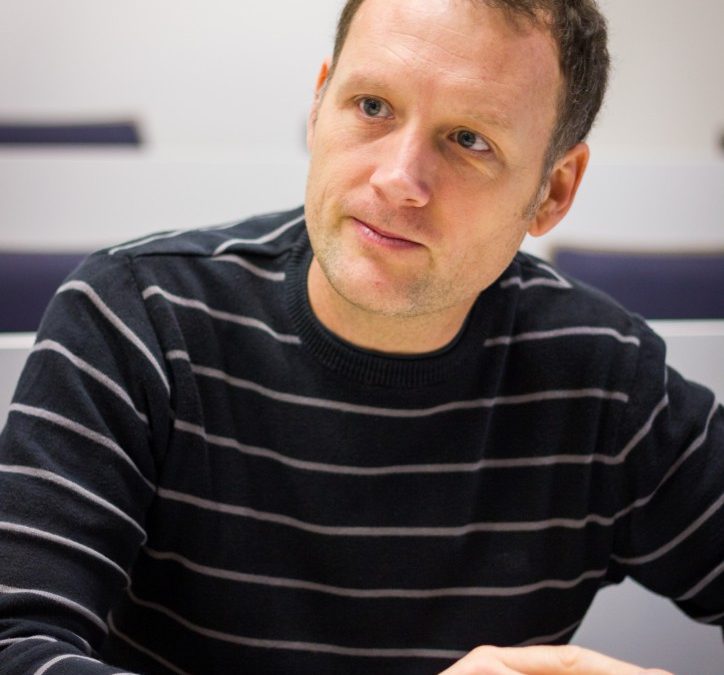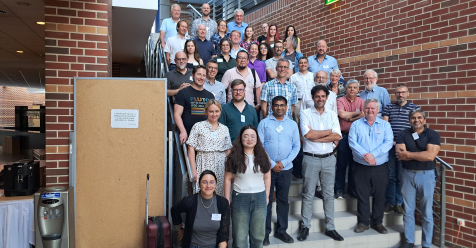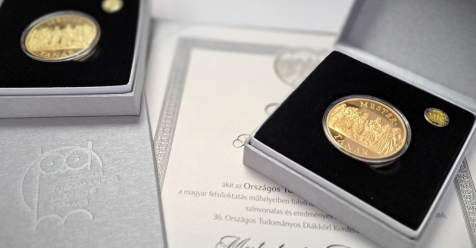
Philosophy
január 5, 2017
Otthonom, Ciprus
január 5, 2017David Smith came from Australia to Budapest, now he does his electric engineering BSc studies in connection with the Department of Technical Pedagogy.
How did you decide to choose the Budapest University of Technology and Economics?
I was already in my second year of a double major electrical engineering and mathematics degree in Australia when I met my wife, who is Hungarian. We thought about the possibility of studying „abroad”, because the circumstances in Hungary meant that our life would be more manageable.
What kind of circumstances do you mean?
The living costs are much lower in Budapest for us – as a family. In my country I would have to work during my studies to help support my family, but we knew that here I could concentrate on my studies and did not need to work. So we looked for a possibility, I applied, and here I am.
How did you meet your wife, by the way? Is she an engineer also?
She was studying in Australia. She is a teacher.
What do you think about Budapest?
Budapest is a wonderful city. Like every place, Budapest has also good and bad sides, with every element of the society. But I met really wonderful people here: when I needed some help, I was always able to find someone who was willing to help me. This was a very positive experience.
The city is beautiful. I visited all the historical buildings that were destroyed during the wars. They give the authentic character of Budapest. You can see the history when you see one of these buildings. And I find the public transport system excellent!
 You have said that you write your thesis. What is it about?
You have said that you write your thesis. What is it about?
The thesis is looking at the impact of electric vehicles, on the low voltage electricity grid. As the case study I have modeled the low voltage grid of a district of BP and am looking at the effect of increased demand on the grid due to charging of electric car batteries.
Was your supervisor helpful?
Yes, he is excellent and was really helpful. He replies to my e-mails quickly and is always willing to answer my questions, basically any time.
What about your courses and exams?
There is not much flexibility in the subjects or the timetable; I just follow the prescribed curriculum. Some of my subjects here are have been very good and others less so. But the system is very different in my country. The assessment is quite different and the teaching style is very different. In Australia there is a much greater focus on problem based learning, problem solving skills, much more laboratory time, and much more utilisation of ICT tools in the learning environment. I already have a BSc and a Postgraduate Diploma from my country and in my experience I think Australian graduates are better prepared for industry when they complete their degree than here. We have a very strong interrelation between universities and industry, to support transition from university to the workforce. Our standard BSc engineering degrees are 4 or 5 years duration (depending on which university you attend), and more comprehensive too. MSc an additional 2 years like here in Hungary. The examinations are different too, more rigorous and much more strictly controlled and supervised. The positive thing I would say is that here there are many opportunities for students to successfully pass exams, for example there are three opportunities to take the final exam if you fail. In my country the exam timetable is fixed and there are not multiple opportunities for repeat exams.
 After having the degree can you work in this country?
After having the degree can you work in this country?
Yes, of course, I could, but I don’t want to stay here.
Why?
Because I’m not sure that there is a wide range of opportunities in Hungary for foreigners. I think it’s very important to speak Hungarian well, and my Hungarian is really not so good. But if there was a great opportunity, of course I would consider staying here since my wife is Hungarian, and my family is here, so we are supported.
Do you want to go to a master program?
Yes, definitely.
In Australia?
No, I am actually looking for a master program in Germany or Austria. The discipline that I specialized in is not available in a master program for international students.
Do you study in connection with the Department of Technical Pedagogy?
Yes, I started my pedagogy course in September 2015. The teachers are very enthusiastic, the classes are really engaging. I have a memory: when I checked the subject list and realized I should take a lot of economics and humanities subjects and I just thought why these? However, I now realize that I underestimated how much I learnt and how important the knowledge acquired from these disciplines will help me in my personal growth and in my engineering career. These are really important subjects, where you can learn a lot.
 Did you have psychology classes also?
Did you have psychology classes also?
Yes, and I think it was very beneficial and interesting to at least have some overview on psychology. You will necessarily use the psychological skills every day. So the background knowledge is very useful. Also, I think teaching pedagogy is very important.
Were your courses interactive?
Not all, the subjects I have taken at Faculty of Economics and Social Sciences were the most interactive. As I see, it is really important and an especially good way for students to share ideas and their knowledge. And making efforts is appreciated here by the lecturer.
Do you think it is easy to be a student here?
There is no one holding your hand which may sounds frightening but it’s good for young people: it makes them develop. And the facilities of the University are very good.
Any special advice for the students?
My most important advice is to leave your mobiles and notebooks at home. You really don’t need them in class. Concentrate on the teacher, not Facebook.



